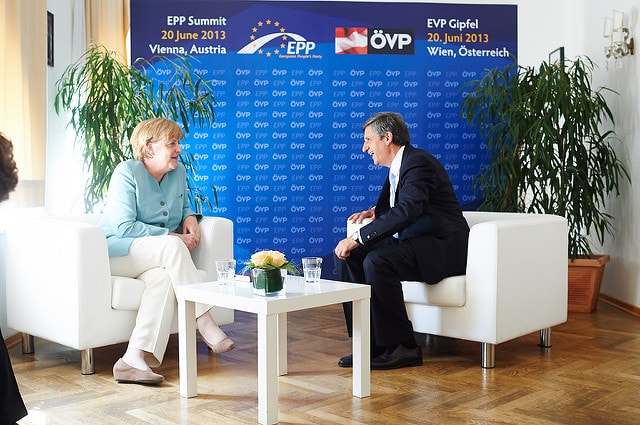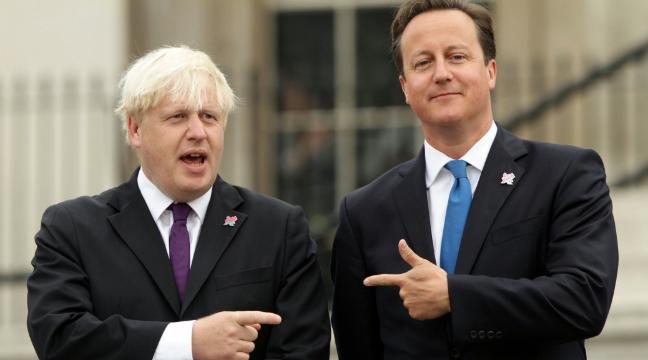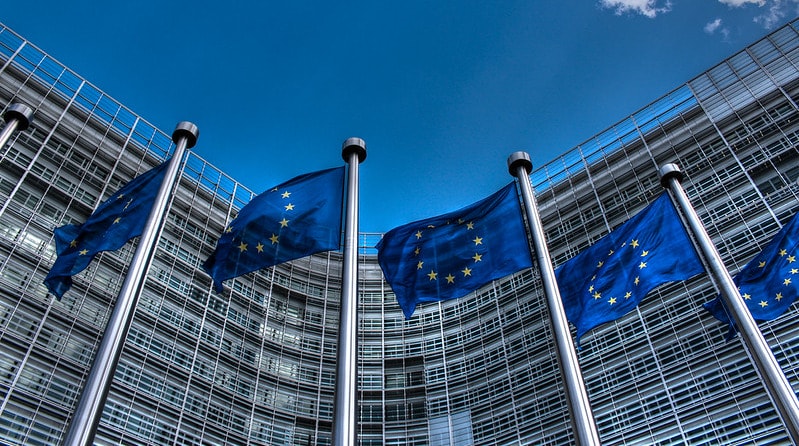…and a modest proposal to fix it.
The first lesson from Brexit, the UK vote to leave the European Union, should have been this: that a referendum is a bad idea, it weakens democracy and leads to potentially hugely damaging political decisions.
In the economic area, bad news for Britain has already happened, the pound has plunged to its lowest historical level in thirty years and British commercial real estate is reeling, some 20 percent lower, a harbinger of a broader crisis in real estate.
Good news are few: Australia has announced it wants a free trade deal with the UK after Brexit (to replace what is now available with the EU) and you can expect other Commonwealth countries to follow suit; and there is Japanese SoftBank’s recent acquisition of ARM, the technologically advanced British chip designer, a $32 billion investment in the British economy, that, oddly enough, did not provoke cries of anguish from nationalists who (normally) do not like to see “British jewels” sold to foreigners (though it seems that investors in Japan have serious doubts about the deal). But then, the Brexiteers needed to exhibit some good business news in the face of the coming unavoidable recession as the UK slowly exits the EU (it will take at least two years).
Threats to Great Britain in the political arena are far greater: Britain risks losing Scotland and Northen Ireland. The Scots are already talking about a referendum for independence (that would allow them to join the EU) and Ireland is evoking the possibility of re-uniting with Northen Ireland, just as East and West Germany joined together. If all this comes to pass, Great Britain will be no more, in its place we’ll have “little England.” Hardly the result that even the most ardent Brexiteer could have wished for…
Yet, in spite of the obvious economic and political risks, the populist far-right parties on the European continent have all latched onto the Brexit example, eager to emulate UKIP’s success with its Leave campaign. They are all clamoring for referendums from Marine Le Pen (Front National) in France to Geert Wilders (Party for Freedom) in the Netherlands, not to mention Germany, Italy, Spain etc.
And matters are not helped by the continuing avalanche of ISIL-inspired attacks in Europe, from the massacre in Nice on Bastille Day to the Afghan teenager wielding a murdering axe in a German train. Such news is fodder to the populist/chauvinist mill.
Add to the mix the extraordinary passivity of our political leaders, with German Chancellor Merkel in the forefront who clearly likes to sit on her hands while her Finance Minister Schäuble shoots down any attempt to strengthen the Eurozone; his chief concern is to defend German banks and German interests and he does not see it as Germany’s duty to sustain the weaker partners in the EU in a collaborative union, even though Germany is Europe’s strongest economy: in fact, collaboration is not in his vocabulary. There is no question that he is the least “European” of all German politicians, and in fact, he would be in good company with Marine Le Pen and Geert Wilders, all bent on shooting down the European Project. Meanwhile, the EU Commission in Brussels keeps mum, trying to stay out of the political melee, and in so doing, increasingly looking like the culprit.
This is why an exasperated population sees referendums as the solution, the only way to push politicians into action. Referendums are seen as “direct democracy” at work, giving voice to the people in a way that normal elections do not.
If only it were so.
In the Photo: Angela Merkel speaks at the European People’s Party Summit. Photo Credit: Flickr/EPP
1. The Many Ways Referendums Can Mislead Voters
A close examination of how a referendum actually works shows something radically different: Far from being a democratic tool, a referendum is an extremely dangerous political exercise that is open to ugly demagogic manipulations, and thus leads to unexpected and unwanted results.
In our Internet-connected society, with Facebook, Twitter and tabloids sharing the voters’ attention like never before, the level of “information noise” is, as a result, higher than ever before, and the “noise,” unfortunately, tends to hide the “information.” In our current technological climate, with news valued by the number of “clicks” and “shares”, information is debased and a referendum is an increasingly dangerous tool, open to distortions.
Hard Facts Give Way to Non-Facts
Voters are not better informed when disinformation is as important as facts – as we saw in the case of Brexit. Consider what happened during the campaign. At first, it looked like it would turn into an interesting public debate, with the facts about staying in or out, brought out in the open.
Every major think tank in Britain and in the world, including the IMF and the OECD, pitched in with their complex economic analyses. But a month before the vote, something happened. The facts turned out to be annoying, even boring, there were too many of them, too much to read, too much to digest.
A large number of voters were turned off and preferred to follow their instinct. It was more emotionally satisfying to show dislike for your Polish or Italian neighbor (finally you could do it without incurring disapproval from your other neighbors). It was easier to believe in non-facts that promised satisfactory results.
Of all the false promises the most famous one was the idea that with Brexit the UK would get back the £350 million it pays to the EU every week and invest it in its National Health system – a patently impossible promise to maintain on two counts: the amount paid to the EU was half that claimed by the Leave Campaign, and once Brexit kicks in, all funds available to the government would need to be used to defend the economy – clearly nothing would be left for the Health system.
In the last three weeks running up to the referendum, far from having a sedate, informed and civil debate, we were treated to a Brexit vs. Remain brawl in the best (loud) American tradition. The Brexiteers were pumped up by a wave of phobia for foreigners and immigrants, and expressed heights of racism and nativism not seen before in public. All this, alas, culminated in the murder by a deranged nationalist of MP Jo Cox, a young mother of two whose only fault was her openly-expressed belief that the UK should remain in the EU.
Related articles: “IMPAKTER ESSAY: THE UGLY SIDE OF BREXIT”
Unfortunately, her death did not change the course of events, and the Brexiteers won, if by a relatively small margin: 17 million for Brexit, 16 million against – with some 12 million registered voters who failed to turn up for the vote. For such an important vote, it is stunning that so many people failed to vote. That’s fully a quarter of the total. In fact, that’s a rather large percentage for a referendum, a type of vote that often manages to mobilize up to 90 percent of the voters (if the question is sufficiently earth-shaking, as this one certainly was). This is in sharp contrast to regular elections that draw much smaller numbers to the polls – unless something unsettling happens, like Trump’s candidacy in the US presidential elections that is likely to draw larger numbers of voters than usual.
Moreover, the vote was deeply split, between Scotland and Northen Ireland voting to remain, and it was painfully polarizing within families, with over 70 percent of Millennials wanting to stay in the EU that they saw as their future while (some) of their parents and (most) of their grandparents voted against.
Brexit illustrates the power of disinformation, but there are other ways in which a referendum can hurt and lead to the wrong (or unexpected) decisions.
 In the Photo: Poll card from the June 23rd referendum Photo Credit: Flickr/Abi Begum CC20.0
In the Photo: Poll card from the June 23rd referendum Photo Credit: Flickr/Abi Begum CC20.0
A Poorly-Formulated or Ill-Timed Referendum Can Mislead Voters
Take the divorce referendum in Italy held in 1974. In a deeply Catholic country such as Italy, this was a referendum that institutionalized divorce and caught everyone by surprise. It turned out that the way the referendum question had been phrased misled an ample section of the voters, not used to the complexities of legal language. They ended voting for divorce when they thought they were voting against.
Italy, in fact, is one of several European countries with a long history of referendums – referendums are fairly common in democracies, ever since Switzerland first coined the term and started doing them some 500 years ago, but the Italian example is instructive. Counting the next constitutional referendum set for October 2016, Italy has run 22 referendums since the first one in 1946 that established the country as a republic (it had been a monarchy up to that point in its history).
In spite of this long experience, Italy has repeatedly made mistakes in formulating referendum questions, yet another factor contributing to the complexity and danger inherent in organizing a referendum. For example, in 1993, an eight-part referendum confused voters and resulted in a perplexing request that the Ministry of Agriculture, in a deeply agricultural country such as Italy, be closed down. Eventually, since the result was so gross and unpalatable, Parliament resolved the problem by side-stepping it and re-establishing the Ministry under a different name.
And even the 1946 referendum that established the Italian republic, though clear enough in its formulation, was highly unsatisfactory and polarizing, with the North in favor of establishing a republic and the South wishing to maintain the monarchy and complaining that many of its military that would have voted for the monarchy had not yet returned (at the time, many were still detained in concentration camps by the Allies).
A plausible argument was made that the timing of the referendum was wrong, that it should have been held later, once everyone had returned from World War II.
However, this was not the problem with the British referendum that led to Brexit: It was very clearly phrased, with no possibility of misunderstanding. The timing however was bizarre, and entirely Prime Minister Cameron’s doing, no doubt a result of a self-serving attempt to win over the Euro-skeptics in his party – a calculation that miserably backfired and seems to have had little to do with the UK relationship with Brussels. In fact, he had just obtained from Brussels in January of this year, additional benefits and favorable exceptions to EU rules, including regarding health coverage for EU citizens migrating in the UK (normally they should have been automatically covered, instead, he had obtained delays in coverage).
Are there circumstances when the best-phrased and best-timed referendum is still not right?
It would seem so. The Brexit referendum is a perfect illustration of the many ways a referendum can hurt democracy.
2. Why Referendums Hurt: The Absolute Sway of the Majority Rule
Regarding Brexit, we read everywhere in the media flat statements to the effect that “Britain has decided to exit the EU” and equivalent formulations implying this was a decision of the people as a whole.
But a referendum is never the decision of the people as a whole. It is the decision of a majority defined as half the votes plus one, a strict definition – in fact, a restrictive one.
Again, look at the situation created by Brexit.
Britain has a population of 64.1 million but only 17 million have decided for Brexit. You could say, tough luck for those who disagree, they should have gone to vote.
What is intriguing here is that the referendum delivered a truly momentous decision likely to turn Great Britain into a minor world player in the future, even putting at risk its “special relationship” with the US.
Surely Brexiters who are declared nationalists wishing to “reclaim” the British government for itself, could not have wanted this – but of course, they never reflected on the consequences of their vote. Instead, they emotionally decided all the experts were wrong and blindly followed the siren call of their Brexit leaders, UKIP Secretary Nigel Farage and former Mayor of London Boris Johnson, a personal rival of Cameron in the Labour party (one may well wonder whether Johnson’s campaign was merely a power game to defeat Cameron).
Imagine the Brexiteers’ surprise when on finding out they had won, both Johnson and Farage resigned. They are the ones who should have led the exit negotiations with the EU, but faced with such a daunting task, they both gave up on their responsibilities. And so did Cameron.
In the Photo: David Cameron (right) appeals to Boris Johnson (left) to not join the Brexit campaign. Photo Credit: Flickr
They made the mess and left it to be cleaned up by others – in this case, it will be the task of Theresa May, who was Home Secretary in Cameron’s government, the second woman to become Prime Minister after Margaret Thatcher.
Extraordinary. The “majority decision” delivered via the referendum may look like democracy at work, but it isn’t. And here is why:
The Numbers Are Paltry
17 million votes for Brexit is hardly a majority of the 64 million Britons, in fact, it is arguably a minority. Moreover, almost as many voted the other way, and it was always a close call. So close that on the fateful night of 23 June after the polls were closed, everyone at first thought Remain had won.
Is it right to disregard 16 million voters? Is it right to condemn British future generations (the Millennials) to a destiny not of their own choosing?
Yet that is what Brexit did, that is what a referendum does. Even if the difference is small (52 to 48% as was the case here), the result must be accepted: Democracy is government by the majority of the people, right?
Wrong. The situation is far more complex and it’s not just a matter of numbers. It has to do with the kind of answer delivered by a referendum, which gets us to the second point: A Yes/No Answer Is Often Not Appropriate.
Arguably, Brexit was too complex a question to be amenable to a simple Yes/No answer. The treaty linking the UK to the EU is some 40 years old, it involves 27 European countries, covers numerous areas and is highly complex. Some 7,800 regulations will need to be canceled for Brexit to take place.
Furthermore, the UK-EU relationship was not amenable to a simple assessment: it carried both benefits and disadvantages. In a way, you could say the UK was part of a closed-knit club that gave it a special political place in the world, and as a member of the club, it had a voice in decision-making (in Brussels) but it also had dues to pay and duties to perform.
For example, take fisheries: The British fishing industry was in fact helped by EU regulations that limit catches in order to maintain fish stocks – thus preserving the industry’s income in the long term; but that is not the way small fishermen saw it. They railed against foreign boats they saw in “British waters,” forgetting that they too had a right to fish in French, Dutch and Belgian waters, and of course, hating the regulations that put limits on their own catches.
For a full mindmap containing additional related articles and photos, visit #brexit
Or take the EU funds that were used by the British government to recycle and retrain workers displaced by globalization when manufacturing plants that were employing them were forced to shut down. They were helped, yet they were the ones who voted massively for Brexit, ignoring or perhaps not realizing that the EU had helped them. When things go wrong, it’s always easier to blame foreigners, and it requires dispassionate, balanced analysis of the situation to truly assess the options, something that most people don’t have the time, patience or preparation to do.
That’s why there is a Parliament and deliberative democracy.
Voters delegate to their representatives in Parliament the task of understanding such complex issues as international treaties, and more generally, the task of governing a modern economy. And modern economies in a globalized world are extremely complicated and delicate structures; it helps to have representatives in Parliament fully occupied with these questions, able to debate the pros and cons and seek expert advice when needed. Solutions are arrived at after long debates, solutions that are usually compromises between the various parties. Not everyone will be happy but most people will find they “can live with” such solutions. The process works well as long as it is not (too) corrupted by private interest lobbies (but that is another problem).
Referendums that reduce issues that are open to multiple solutions to a simple Yes/No do not provide an appropriate mechanism to solve problems in a modern society – and certainly, by definition, they cannot come up with refined compromise solutions that seek to satisfy a maximum of people.
Photo Credit: Flickr/Andrew Gustar CC2.0
Referendums Bypass Deliberative Democracy
This is by far the biggest problem with referendums. With their yes-no frame, referendums are suitable to simpler times, in a world with fewer economic, social and political challenges – like Switzerland in the 16th century when the mechanism was first used.
To deal with the growing complexities of our industrialized societies, democracies have developed other, more appropriate instruments: Those of “deliberative” democracy. Parliaments started to function the way we know them at the dawn of the industrial age, first in Britain and later in America, in continental Europe and elsewhere. They brought together increasing swathes of the population, first only “men of substance” and later all men from all walks of life, and finally, in the 20th century, women.
Deliberative democracy is a process whereby the basic tenet of democracy – one person, one vote – is still respected (voters elect their representatives), and, as mentioned above, it is the elected representatives, not the voters, who discuss and assess the options, often with the help of experts, in parliamentary sessions, that last as long as needed to achieve a balance between the party in government and the opposition.
Yet, with a referendum, an elected Parliament is by-passed. It is not allowed to discuss the options, it must accept the Yes-No result.
Which is more democratic, an elected Parliament or a referendum?
This is not a question that has an easy answer. In my view, an elected Parliament is the preferred, more democratic decision-making mechanism, with its flexibility and capacity to investigate questions in depth, seeing it from all angles (granted, sometime it does not do so; but in principle, it can). By contrast, a referendum, as a democratic mechanism, is no longer adapted to our times.
But something could be done to adapt it.
3. A Modest Proposal to Improve Referendums
Since the biggest drawback of referendums is that they by-pass deliberative democracy, the solution would be fairly simple and straightforward: integrate referendums in the Parliamentary process.
This could be done by formulating referendums in a different, novel way. Instead of asking a Yes/No question that places the onus of the answer on the voters, it would ask:
“Do you want Parliament to discuss and resolve the following question: include here the question – for example, in the case of Brexit it could have been as simple as “should the UK leave or remain in the EU: ” Yes/No.”
This would result in throwing back the responsibility for solving the question to Parliament. It would make the referendum part of the Parliamentary process, instead of bypassing it.
In fact, the referendum would become the starting point of the debate in Parliament, putting the issue on the table, calling on every elected representative to participate.
Such a referendum would also serve to throw the spotlight on the Parliamentary debate. And here is where responsible journalism comes in, with the task of keeping voters informed of what is going on in Parliament, who is saying what and why.
It might take time as all Parliamentary debates do, but the result would be unquestionably superior, more in line with the wishes of the whole population and not just the tiny minority that votes in a referendum. Deadlines to arrive at a resolution of the problems could also be set or called for by yet another referendum.
If you think about it, referendums hark back to an earlier time, when direct democracy was feasible and realistic, in small communities high up in the Swiss mountains, or earlier still, in the squares of ancient Athens. It’s high time to update the system and make referendums a part of deliberative democracy.
Recommended reading: “THE BEGINNERS GUIDE TO BREXIT: WHAT HAVE WE LEARNED SO FAR”
_ _

















